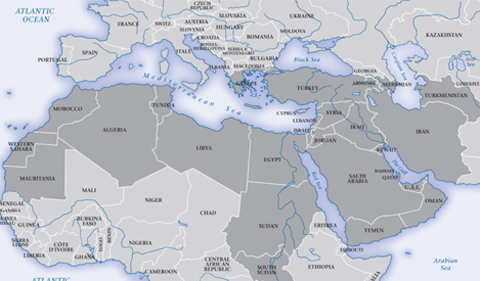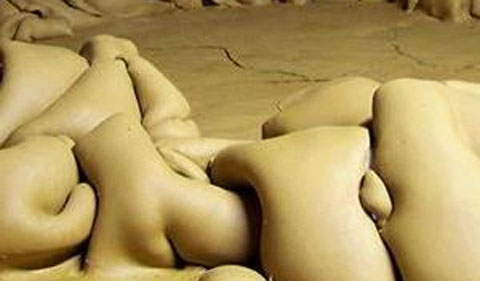
The Spring 2018 courses that fulfill requirements for the Middle East and North Africa Studies Certificate include three courses.
Students and advisors interested in learning more about the MENA studies certificate should consult the requirements and contact the coordinator of the program, Dr. Ziad Abu-Rish at abuz@ohio.edu.
CLWR 4330 – Political Islam
Tuesday/Thursday 9-10:20 a.m. | Prerequisites: None
Description: Why have some Muslims turned to religion as a source for political identity in the contemporary world? What terms should we use to describe this phenomenon? Which individuals and groups have embraced the religio-political renewal, and why have they done so? What forms have the renewal movements taken? In what directions have they developed? What role, in particular, have modernizing states played in the instrumentalizing of Islamic institutions for purposes of control and legitimacy? How have non-state actors—the “ulama,” lay activists, social movements—responded to the conditions created by modernizing states? Addresses these questions by exploring a range of case studies in different national/cultural context—Africa (Morocco, Sudan, Somalia), Southeast Asia (Indonesia), Western Europe (France, Germany, the Netherlands), and North America (United States and Canada). Through these case studies, probes what we mean by “political Islam”—but also the politics of Islam, and what the implications are for a wider globalized modernity.
HIST 3320 – Women, Gender, and Sexuality in Middle East History
MWF 12:55pm-1:50 p.m. | Prerequisite: None
Description: This course covers Middle East history from the rise of Islam to the contemporary period, with particular attention to changing practices and discourses regarding women, gender, and sexuality. A key topic of concern is the changing Islamic legal interpretations on seclusion, veiling, marriage, divorce, inheritance, and abortion. Also important is the experience of free and enslaved women of ruling families and elite households. The course concludes with the changing nature of gender identities, practices, and roles in the 19th-century transformations, colonial rule, nationalist and labor movements, literary genres, authoritarian state formation, various modes of economic development, political Islam, occupation, and war.
HIST 3372 – Protest, Rebellion, and Revolution in the Modern Middle East
MWF 10:45-11:40 a.m. | Prerequisite: None
Description: This course provides an exploration of the history of mass politics (i.e., movements, their ideologies, protests, rebellions, and revolutions) in the modern Middle East and North Africa. It takes as its central concern the emergence of popular politics and mass mobilizations in the 19th century and subsequent attempts to organize and manage them. Topics include late 19th-century workers and peasant movements, early 20th-century constitutional revolutions, the introduction of electoral politics, the formation of labor unions, suffragist movements, political parties, and various struggles and strategies to shape state policies, take control of states, or contain the threat posed by rival movements. The course considers both secular and religiously-inspired movements, as well as those across the right and left. No prior historical or regional knowledge needed.
About the Middle East and North Africa Studies Certificate
The Middle East and North Africa Studies Certificate program is designed to provide an interdisciplinary understanding of the history and contemporary dynamics of the Middle East and North Africa region. The curriculum draws on the expertise of diverse faculty from across the social sciences and humanities whose training, research, and teaching center on the Middle East and North Africa region. This is all the more important to address given the immense importance of the region to a variety of careers, including education, journalism, international affairs, public policy, economic development, and security.


















Comments